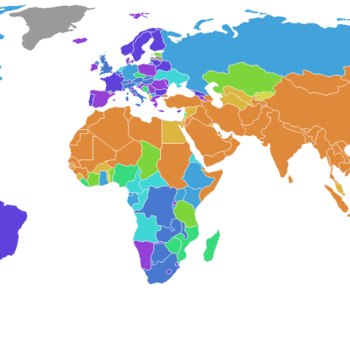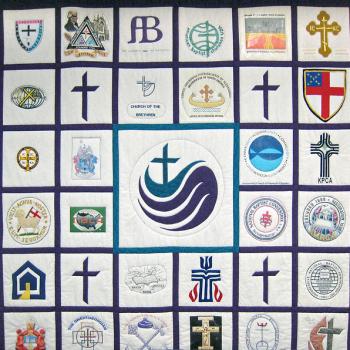While the first months of Pope Francis’ pontificate have been marked by his attention to the poor and his “Who am I to judge” attitude on homosexuality, his pledge to tackle the ban on Communion for divorced and remarried Catholics could have the biggest impact for Catholics in the pews, especially in the U.S.
The current policy has caused what some call a “silent schism,” and bishops around the world concede that the ban has alienated untold numbers of Catholics and their families.
“I think this is the moment for mercy,” Francis told reporters when asked about remarried Catholics during a wide-ranging news conference on the plane back to Rome from Brazil in July.
Like the gay issue, Francis seems to favor a more pastoral approach to the equally perplexing question of “invalid” marriages — couples who remarry outside the church without getting an annulment, or those who do not get married in church in the first place.
In both cases, those Catholics are ineligible to receive Communion, which is the central sacrament of Catholic practice. For years, efforts have tried to convince Rome to try something new — appeals that the new pope seems ready to heed.
“We are on the way towards a deeper matrimonial pastoral care,” Francis said. “This is a problem for many people.”
In the U.S. alone, out of a total of nearly 30 million married Catholics, some 4.5 million are divorced and remarried without an annulment, according to Mark Gray at Georgetown University’s Center for Applied Research in the Apostolate.
Moreover, the number of Catholics marrying in the church and the number of annulments are steadily declining, which means that a growing number of Catholics are in “irregular” marriages and are technically barred from receiving Communion.
In North America and Europe, in particular, bishops have pushed the Vatican to at least discuss some reforms, but they have always been rebuffed. Some dioceses have initiated their own reforms. In the latest effort, the German Archdiocese of Freiburg recently announced policies aimed at allowing divorced and remarried Catholics to take Communion after prayer and consultation with a priest.
But when the Vatican announced in early October that Francis was calling hundreds of bishops to Rome next fall to discuss this issue and others related to the family, it also asked that individual dioceses not freelance their own solutions in order to avoid “generating confusion.”
So can this knotty problem finally be resolved? And how? Here are three possibilities that have emerged:
One: The “Orthodox Option”
Francis himself cited the practice in Eastern Orthodox churches of allowing, for various reasons, a second or even third marriage — and thus access to Communion — while still considering the first marriage sacramentally valid. Adopting that practice would require a change in Catholic practice but it could help avoid what is now a pastoral roadblock.
“There would be a sympathetic view among most laity, clergy and bishops for something like that,” Bishop Kieran Conry of Arundel and Brighton told The Times of London.
Two: Let your conscience be your guide
Catholics have always had recourse to what is called the “internal forum,” that is, following their conscience on whether they are eligible to receive Communion even if they’re in an “irregular” marriage.
This is not intended as a “get out of jail free” card and should involve “a moral judgment of conscience that calls for serious personal reflection over a period of time,” as the Rev. James A. Coriden, a canon lawyer at the Washington Theological Union, put it in a detailed analysis in Commonweal magazine last year.
But if next October’s Vatican synod highlighted the “internal forum” option, church experts say it could go a long way toward teaching Catholics how an appeal to conscience can work, and could help remarried Catholics take part in church life without feeling like second-class citizens.
Three: Streamline the annulments process
Annulling a marriage in a church court can be a tortuous and expensive process that varies so widely from country to country that it raises questions of basic fairness. Indeed, two-thirds of the nearly 55,000 annulments granted by church tribunals around the world each year are in the U.S., even though American Catholics account for just 6 percent of the world’s Catholic population.
As Francis himself said, the process for annulments must be reviewed “because ecclesiastical tribunals are not sufficient.”
















